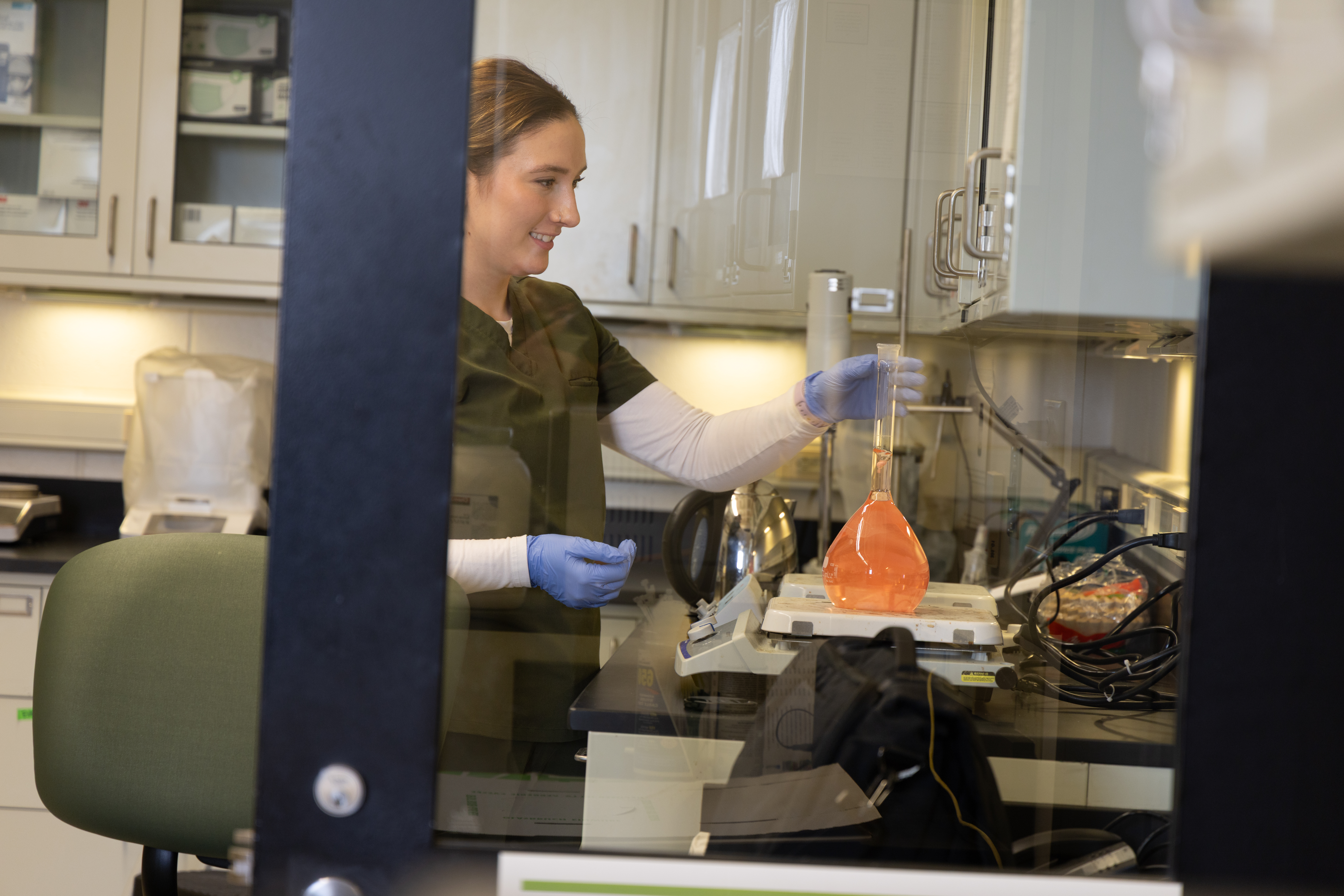Payton Harmon
Student Spotlight

Turning Taste Science into Lifesaving Care for Children

Turning Taste Science into Lifesaving Care for Children
|
Masuda Akther is a third-year graduate student in the Cellular and Molecular Pharmacology program, currently conducting research in Dr. Alexander Valvezan's lab at the Center for Advanced Biotechnology and Medicine (CABM). With a strong interest in translational studies, she has focused her research career on bridging fundamental science and clinical applications. Her current work centers on developing cancer therapeutics, specifically targeting cancer metabolism to identify new treatment strategies for patients with Tuberous Sclerosis Complex (TSC). Outside the lab, she enjoys spending time in nature, finding inspiration and balance in the outdoors. Exploiting the unique metabolism of tumor cells to develop new therapies. Mutations in the tumor-suppressor genes TSC1 and TSC2 cause Tuberous Sclerosis Complex (TSC), a genetic disorder that can lead to tumor growth, and are also linked to certain cancers. Tumors lacking TSC1or TSC2 show increased activity of mTORC1, a protein complex that drives cell growth and metabolism. Our research has revealed that TSC2-deficient cells are highly dependent on the enzyme IMPDH, which is crucial for producing guanine nucleotides—essential building blocks for DNA and RNA. Blocking IMPDH with a drug called Mizoribine, which is already approved for clinical use, creates stress on DNA replication and damages the DNA in TSC2-deficientcells, ultimately causing them to die. However, these cells can adapt to this treatment by activating pathways that repair DNA damage and manage replication stress, making them less sensitive to the drug. To overcome this resistance, we tested combining Mizoribine with drugs that block key proteins in these pathways, such as ATR, CHK1, CHK2, DNA-PK, WEE1, and ATM. Our preliminary results show that combining Mizoribine with an ATR inhibitor (AZD6738), which is being tested in cancer clinical trials, significantly increases cell death in TSC2-deficient cells compared to using Mizoribine alone. Similarly, inhibitors targeting WEE1 (AZD1775) and CHK1/CHK2 (AZD7762) also boost Mizoribine effects. These findings suggest a promising new treatment strategy: combining drugs that block DNA repair and replication stress pathways with IMPDH inhibitors to more effectively kill cancer cells lacking TSC2.
Veronica Armour is a PhD student in the Department of Library and Information Science and the Director for the Innovation, Design, & Entrepreneurship Academy at Rutgers University-New Brunswick. Her research is inspired by the pathways she has constructed as she’s navigated her career journey and her observations of the ways in which undergraduates’ career pathways are constructed and evolve while at university. Mapping Pathways: How Information Shapes Transitional Journeys My research tells the story of how and why information is used to create a pathway to support the navigation of a transitional period in an individual's life. Pathways can be constructed (think of planned or designed paths) or informal, sometimes called desire paths, that emerge as shortcuts taken by individuals when an official path does not exist or is not practical to take. This presentation will discuss how we might use a socio-material perspective to tell the story of pathways through mapping information structures to see what shapes a pathway and mapping information sources to see who is found along the way. By emphasizing the actors and relations involved in our information interactions, I expand our view of information behavior beyond the individual/cognitive perspective to encompass a community/social perspective.
|
Join us for our next Research Café on Tuesday, April 16 at 3:00 PM (via Zoom) for an inspiring session showcasing the diverse and innovative work of graduate students at Rutgers.
The School of Graduate Studies (SGS) is pleased to announce the winners of the second annual SGS Community Engagement Award, recognizing graduate students who have demonstrated ethical, collaborative engagement through their research, teaching, and advocacy to advance the public good.
March 14, 2025 – New Brunswick, NJ – The 2025 Three Minute Thesis (3MT) Final Round at Rutgers University School of Graduate Studies (SGS) brought together eight doctoral finalists for an engaging competition that challenged them to present their research in just three minutes.
2026-2027 SGS Fellowship for Excellence
By Megan Schupp
Chemistry and Chemical Biology Building
123 Bevier Road, Room 3217
Piscataway, NJ 08854
The Process Research & Development (PR&D) Enabling Technologies (ET) group at Merck is kicking off recruitment for 2026. To provide more information on ET, it is composed of 3 groups—Data-Rich Experimentation, Chemical Biotechnologies, and Continuous & Expression Technologies—that develop cutting-edge technologies to address current and future problems in Merck's small molecule, biologics, and vaccine pipelines. This group spans a range of research areas including synthetic chemistry, technology development to enable data-dense solutions, biocatalysis & protein engineering, flow chemistry, and microbial production. Anne Marie Crooke, PhD and Cecilia Bottecchia, PhD will be visiting Rutgers to give an overview in a group information session followed by individual meetings with students and postdocs who are interested in applying for roles with PR&D ET. We will be collecting the resumes/CVs of those who want to be considered for individual meetings and scheduling times for later that day.
This is your chance to peek inside the walls of Merck’s headquarters. We will tour two different labs and hear from a panel of PhD level employees in a variety of roles followed by networking time. The areas of focus at Merck Research Laboratories include oncology, vaccines, infectious diseases, cardio-metabolic disorders, immunology, neuroscience and ophthalmology. At Merck they believe that research is the will to conquer the impossible and that science will lead the way.
201 S Broadway
Joint Health Sciences Center, Room 104BC
Camden, NJ 08103
A Contract Research Organization (CRO) is a great place for a fresh PhD to land their first job. More and more pharmaceutical companies are outsourcing parts of their projects to these CROs so it is a growing industry. Come meet PhD-level panelists who work at CROs to learn how you can get this kind of job and the benefits of working there to get your foot in the door of industry.